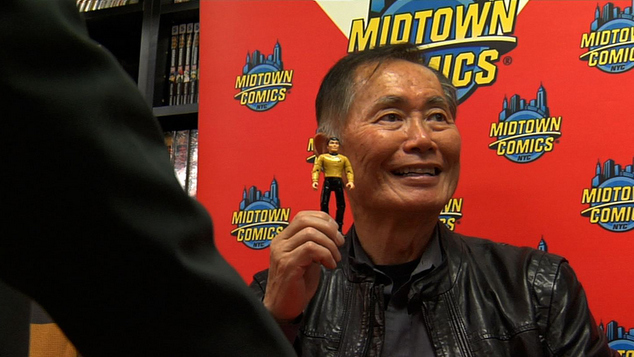‘To Be Takei’ is one of the films hitting Perth as part of the Revelations Film Festival. The film is a documentary about LGBT activist, internet humorist, actor, icon and ‘Star Trek’’s Mr. Sulu, George Takei. We chatted to director Jennifer Kroot about documenting the life of such a unique and eccentric character.
It took Kroot about three and a half years total to make the film, two and a half of which was spent shooting different moments of Takei’s life and a year in post-production and editing. Takei’s varied career added yet another string to its bow during filming. “He wasn’t on Facebook for instance, when we started to film, and that was of course insane! And I thought ‘Wow, his career has really reignited’ [Laughs] but then Facebook came along and like oh my god!’”
Takei took to Facebook to promote his musical ‘Allegiance’, which tells the little-discussed story of the internments camps used to imprison Japanese-Americans during World War Two. Takei himself was imprisoned in one of these camps as a child, an aspect of his life that Kroot said was one of the reasons she’d decided to choose him as the subject of her latest film. “I read his autobiography, which was written before he was out but it did discuss that he was imprisoned in Japanese American internment camps when he was a child and of course I know history but it never occurred to me that Mr. Sulu could have been imprisoned by the United States government.”
Takei is also a well known LGBTI activist, having come out in 2005. He subsequently spearheaded the ‘It’s OK to be Takei’ campaign, where he encouraged gay, lesbian, bisexual and transgender students in schools affected by legislation that prevented students and teachers from addressing homosexuality to use his last name as a substitute for the word ‘gay’, allowing them to address their identities. Takei’s relationship with his husband Brad is one of the most touching parts of the film.
“I think part of their advocacy is really showing how they’re just a normal couple. There’s nothing shocking about them as two men. They’re just a comfortable couple.” Kroot explains. “I think a really important message that he’s been consistent with for a long time but the world is just starting to catch on is that discrimination for racial reasons is the same as discrimination against sexual orientation and promotes civil rights. So I think there’s a really clear illustration of that. I think a lot of people are enlightened enough nowadays to know that, but not everybody is. I think he really is a great figure to show that in case anybody hasn’t realised that. He says it without being preachy.”
Sophie Joske






